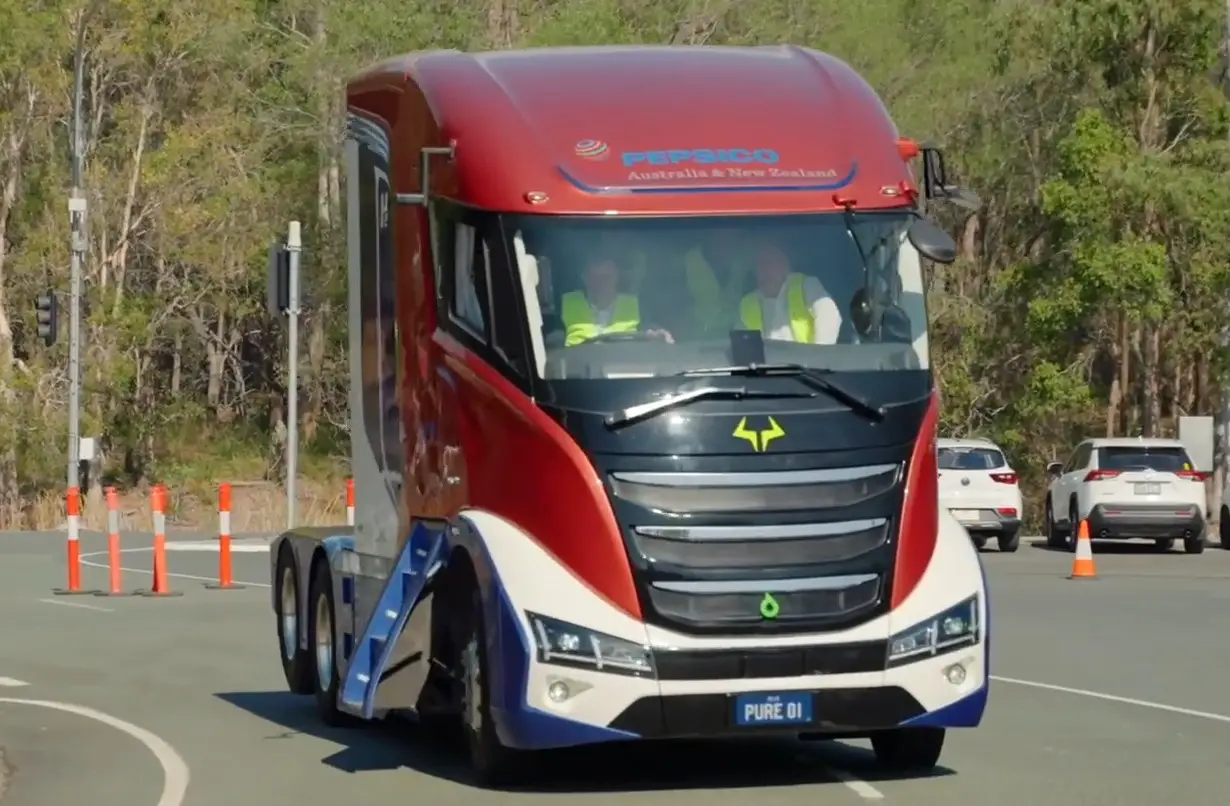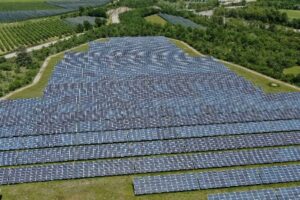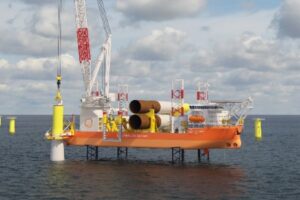Australia’s first hydrogen fuel cell prime mover truck is ready for purchase

The commercial fuel cell truck is available to buy.
Produced by Pure Hydrogen (ASX:PH2), the hydrogen fuel cell prime mover truck, “Taurus”, is the first of its kind in Australia and is now available for sale on the commercial market, marking a major milestone for the Australian hydrogen company.
The new HFC truck could revolutionize the country’s long haul transportation sector.
Pure Hydrogen believes that the large-scale adoption of heavy transport vehicles powered by hydrogen fuel is key to kicking off Australia’s hydrogen economy.
The company, which is both a supplier of hydrogen fuel cell (HFC) vehicles and actual hydrogen, has cemented several agreements with customers across multiple markets which could help Pure Hydrogen reach its zero-carbon goals.
The hope is that the Taurus will transform Australia’s long haul transportation industry and launch HFC commercial vehicles into the mainstream.
The hydrogen fuel cell-powered prime mover offers power, acceleration and range without emissions.
The Taurus is an Australian designed 220 kilowatt, 6×4 hydrogen fuel cell prime mover truck. It has a range of 600 kilometers (372.8 miles) and takes only 15 minutes to fully refuel, similarly to a diesel-powered truck. The range and refueling advantages are two of the top reasons that hydrogen fuel is seen by some as a more sensible clean power solution for long-haul heavy-duty trucks compared to electric vehicles, which have less range and can take hours to charge.

Pure Hydrogen’s Prime Mover – The Taurus – Image Source: Pure Hydrogen Vimeo
The Taurus hydrogen truck was built to handle the toughest tasks and can reportedly handle as much as 70 tons. The truck features a cabin meant for long haul driving with innovative features and ergonomics for a “fatigue free journey”.
Additionally, the Taurus utilizes all components in the running gear of present-day diesel trucks; components from leading suppliers like Dana, Hendrikson, Jost, Eaton, and CATL.
Ready in nine months.
 Another benefit of the Taurus is that, once ordered, the vehicle can supposedly be delivered faster than a current internal combustion diesel truck.
Another benefit of the Taurus is that, once ordered, the vehicle can supposedly be delivered faster than a current internal combustion diesel truck.
In an interview with Stockhead, Pure Hydrogen sales manager Clint Butler said that “The Taurus is a zero emission vehicle that can be on the road in 9 months from time of order – try ordering an internal combustion diesel truck today and you will not receive it until mid-2025.”
Prior to announcing the sale of its Taraus hydrogen fuel truck, Pure Hydrogen showcased the vehicle in Brisbane’s Truck Show earlier this year. Following that showcase, the company trialed a Taurus prime mover for six months at one of PepsiCo Australia’s manufacturing sites.
Frequently Asked Questions
1. What makes a hydrogen truck better than an electric one for long haul commercial transport?
Hydrogen trucks have a higher energy density than electric trucks. This means they can store more energy in a given volume or weight, which is crucial for long-distance travel. Moreover, hydrogen fuel cells can be refueled much faster than batteries can be recharged, reducing downtime.
2. How does the range of hydrogen trucks compare to electric trucks?
Due to their higher energy density, hydrogen trucks generally have a longer range than electric trucks. This makes them more suitable for long-haul journeys where charging infrastructure may not be readily available.
3. Are hydrogen trucks as eco-friendly as electric ones?
Yes, hydrogen trucks produce zero tailpipe emissions, just like electric trucks. The only byproduct from a hydrogen fuel cell is water vapor.
4. Is it expensive to maintain a hydrogen truck?
While the upfront cost of a hydrogen fuel cell vehicle may be higher than a battery electric vehicle, the maintenance costs over time can be lower. Hydrogen fuel cells have fewer moving parts than an internal combustion engine, which can result in less wear and tear and lower maintenance costs.
5. Are hydrogen refueling stations widely available?
The hydrogen refueling infrastructure is still being developed. However, hydrogen can be produced on-site at refueling stations, eliminating the need for transport. Additionally, the creation of “hydrogen highways”—corridors with multiple hydrogen refueling stations—is a growing trend, particularly in regions heavily invested in hydrogen technology.
6. How does the performance of hydrogen trucks compare to electric trucks?
Hydrogen trucks can match or even exceed the performance of electric trucks. They offer similar torque and power, but with a longer range and faster refueling times. This makes them an excellent choice for commercial transport where time is often a critical factor.
7. Can hydrogen trucks operate in extreme weather conditions?
Yes, unlike electric batteries that can lose efficiency in extreme cold, hydrogen fuel cells perform well under a wide range of temperatures. Therefore, hydrogen trucks may be more reliable for long-haul transport through diverse climates.
Ready to test your knowledge on the most abundant element in the universe? Take our fun and engaging Hydrogen Quiz now!







